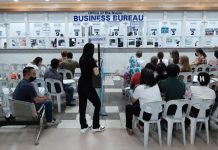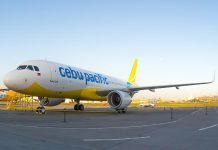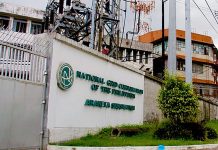The Department of Transportation (DoTr) has signed a memorandum of understanding (MOU) with UltraPass ID Corporation for the pilot testing of a biometrics passenger processing system at selected airports in the country.
The MOU was signed by DOTr Secretary Jaime Bautista and UltraPass chief executive officer Eric Starr on Wednesday at the Fairmont hotel in Makati City.
The signing is part of a US Smart Cities Trade Mission led by Undersecretary of Commerce for International Trade Marisa Lago.
Bautista said the MOU signing is a significant step in the Philippine government’s push for digitalization in the aviation sector.
“The biometric system provides not only convenient passenger processing but also enhances security protocols. Embedded biometric data in passports will allow passengers to breeze through check-in, security, and boarding gates,” he said.
“Through this integration of advanced biometric technology with existing government and airline digital systems, we are considerably enhancing passenger experience at airports.”
Bautista said the system will be pilot tested in Iloilo International Airport in the first quarter of 2025.
The system will also be tested in other airports such as Tacloban, Laoag, and Bicol International Airport in the second quarter of the year.
Bautista said the system will be implemented in two phases –Phase 1 will be for Filipino passengers using the national ID while Phase 2 will be for foreign passengers using e-passports when traveling domestically.
Starr, meanwhile, said the UltraPass technology integrates seamlessly with the Philippine national ID system.
“And through the pilot, we will showcase how digital identity verification can reduce processing time, improve security, and create a touchless efficient airport experience,” he said.
UltraPass is one of the delegation of 12 cutting-edge US companies that are currently in the Philippines for the trade mission.
Lago said these companies represent a broad swath of sectors such as cybersecurity, artificial intelligence, biometrics, engineering and construction, and rail. Some of these companies already have a presence in the Philippines and are looking to expand.
“Across the Philippine economy, US companies have helped grow key sectors —such as the digital economy, semiconductors, and tourism,” she said.
“These companies represent the gold standard for foreign investment, upholding high labor and environmental standards, world-class training, and strong corporate social responsibility programs. And, US business leaders are bullish about even more trade and investment opportunities in the Philippines.” (PNA)






